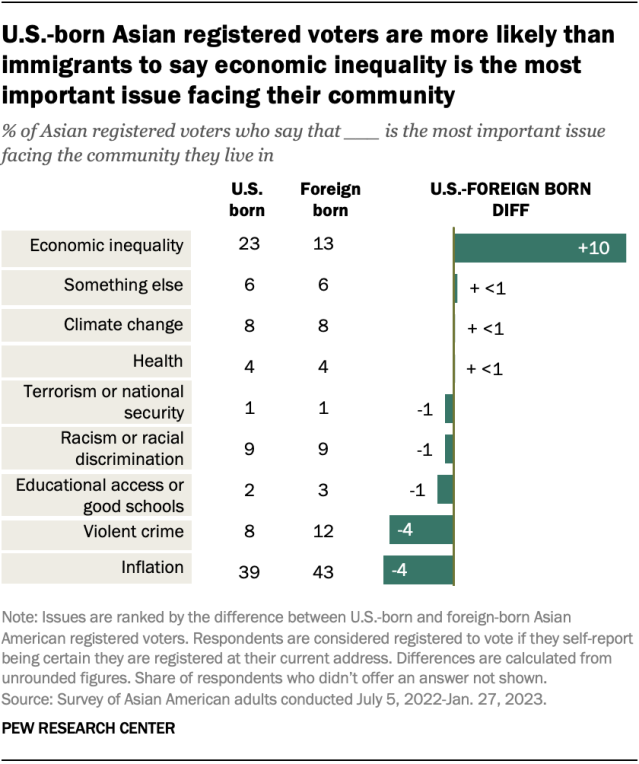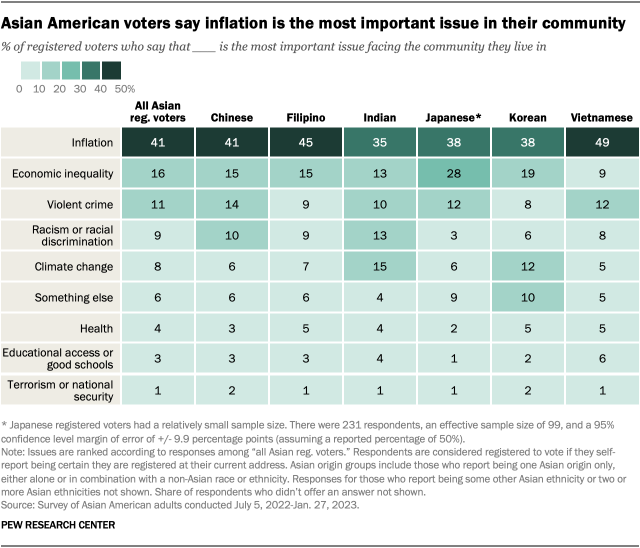ANALYSIS
Republicans are in for a rude awakening if they think they can break up the Asian American vote which went heavily for Democrats in 2020 and 2022. The GOP has two Indian Americans vying for the Presidential nomination, one of which could possibly be the Republican candidate for President, or more likely, selected as a running mate.
Nearly all Asian American registered voters (97%) say a candidate’s policy positions are more important than their race or ethnicity when deciding whom to vote for, according to a new analysis by the nonpartisan Pew Research Center.
A candidate's race, it appears, is not that critical to Asian American voters, the fastest growing voting bloc in the US. This sentiment is widespread among all major demographic subgroups of Asian registered voters.
These findings are especially relevant as the 2024 US presidential election approaches. Two candidates of South Asian ancestry, former UN Ambassador Nikki Haley and entrepreneur Vivek Ramaswamy, are running for the Republican nomination.
At the same time, a 68% majority of Asian registered voters say it’s extremely or very important to have a national leader who can advance the concerns of the U.S. Asian community, according to a nationally representative Pew Research Center survey conducted from July 2022 to January 2023.
Economic inequality (16%) is the second-most mentioned issue, followed by violent crime (11%) and racism (9%). Having violent crime and racism come in a distant third and fourth among Asian American concerns is somewhat of a surprise considering the surge in anti-Asian hate aattacks that have surged since the beginning of the COVID19 pandemic.
Althouh a candidate's race may not be the deciding factor for Asian American voters, 68% say it’s important to have a national leader advancing the concerns of the Asian American community, says the Pew survey.
Asian American voters tend to prefer the Democratic Party almost two-to-one: 62% are Democrats or lean Democratic, while 34% are Republicans or GOP leaners. Most Asian origin groups are majority Democratic. However, more Vietnamese registered voters identify as Republican than Democratic (51% vs. 42%).
Asian registered voters born in the US are slightly more likely than immigrants to view economic inequality as the most important issue facing their community. However, importance of issues varies less by nativity than by party among Asian Americans.
In addition, the ranking of issues is largely similar across the diverse Asian communities, though some minor differences emerge:

- Japanese registered voters (28%) are more likely than Chinese (15%), Filipino (15%), Indian (13%) and Vietnamese (9%) voters to view economic inequality as the biggest issue facing their community.
- 15% of Indian registered voters say climate change is the most important issue facing their community. This is higher than the share saying the same among Filipino (7%), Chinese (6%), Japanese (6%) and Vietnamese (5%) voters.



No comments:
Post a Comment